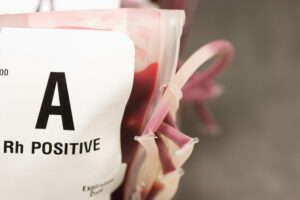Many studies have noted an association between ABO blood group antigens and susceptibility to infection—most commonly that individuals with blood group A are at an increased risk of SARS-CoV-2 infection compared to individuals with blood group O. Until recently, the mechanism to explain this association has not been understood. Researchers noted that the receptor binding domain (RBD) of the SARS-CoV-2 spike protein that binds host epithelial cells shares homology with galectins—an ancient family of carbohydrate binding proteins. Based on a glycan microarray populated with distinct variants of human ABO antigens, researchers found that the SARS-CoV-2 RBD had an overlapping binding profile to galectin-4. Furthermore, using cell cultures expressing both human angiotensin-converting enzyme 2 (ACE2) and type 1 blood group A or O antigens normally found on respiratory epithelial cells, researchers observed the highest RBD binding toward blood group A expressing cells with the Omicron variant RBD. In addition, pre-incubation of the cells with galectin-4 inhibited SARS-CoV-2 infections of cells expressing blood group A but not blood group O. In contrast, galectin 1 (which does not bind any blood group antigens) failed to influence SARS-CoV-2 infection susceptibility. While many factors influence overall susceptibility to SARS-CoV-2 infection, these results help to explain why individuals with blood group A antigen may be more at risk for infection.
Reference:

